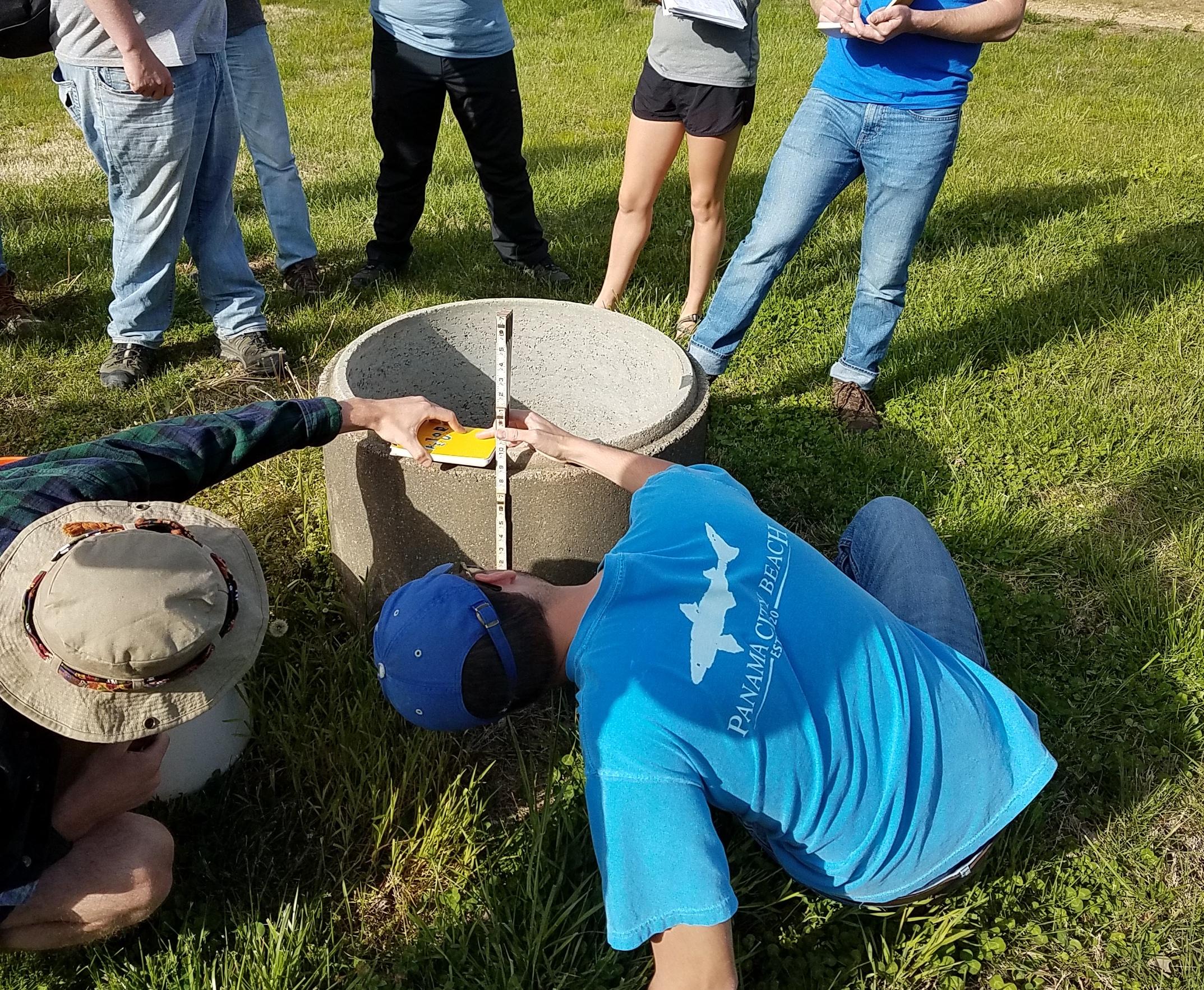Earth and Environmental Sciences encompasses a variety of types of studies of the Earth, including considerations of composition, structure, prehistoric life, internal and surficial processes, and geological history. These studies have applications in the discovery and use of mineral resources, fuels, and water; in protection of the environment; and in planning for natural limitations (earthquakes, landslides, resources, etc.) on societal development. Students undertake the studies in the classroom, laboratory, and field.
Degree Requirements
In addition to satisfying UK Core requirements and the College of Arts & Sciences requirements, each student completes the following (note that the B.A. differs from the B.S. in that students do not have to take CHE 115 or MA 114, and may substitute MA 123 for MA 113):
| Premajor Requirements | Hours |
|---|---|
| Core Courses | Hours |
| EES 220 Principles of Physical Geology | 4 |
| EES 295 Geoscience Orientation | 1 |
| MA 113 or MA 123 Calculus | 3-4 |
| CHE 105/CHE 111 General College Chemistry I + Lab | 3 |
| PHY 211 or 231/241 Physics | 3-5 |
| EES 230 Fundamentals of Geology I | 3 |
| EES 235 Fundamentals of Geology II | 3 |
| EES 350 Historical Geology | 3 |
| EES 360 Mineralogy | 4 |
| EES 420G Structural Geology | 4 |
| EES 450G Sedimentary Geology | 4 |
| EES 461 Igneous and Metamorphic Petrology | 4 |
| Elective I | |
| Six credit hours of EES courses at the 400 level or above, not including EES 495 or EES 496. | |
| Elective II | |
| Six additional credit hours at the 300 level or higher of either EES courses or courses in a related field. | |
| Note | |
| Fourteen hours at the 200 level or higher must be completed outside Geology. Partial fulfillment of this requirement may be completed by PHY, and EES Elective II | |
Potential Electives in Earth and Environmental Sciences:
- EES 310 Explorations of the Solar System [3]
- EES 341 Landforms [3]
- EES 345 Paleoclimatology: The Science [3]
- EES 350 Regional and Historical Geology [3]
- EES 385 Hydrology and Water Resources [3]
- EES 395 Special Problems in Geology [1-6]
- EES 399 Experiential Education [1-6]
- EES 401G Invertebrate Paleontology [3]
- EES 480 Advanced Topics in Geological Sciences (Regional Field Trips) [3]*
- EES 490 Earth Dynamics [3]
- EES 495 Senior Thesis Seminar [3]
- EES 496 Senior Thesis Research [3]
- EES 511 Petroleum Geology [3]
- EES 530 Low Temperature Geochemistry [3]
- EES 550 Fundamental Geophysics [3]
- EES 560 Geophysical Field Methods [4]
- EES 555 Stratigraphy [3]
- EES 585 Hydrogeology [3]
*Recent examples of EES 480 course topics include Glacial and Quaternary Geology (Fall 2025), Paleohazards (Spring 2025), and Geomorphology and Earth Surface Processes (Spring 2024).
Suggested Courses in Related Fields:
- BIO 325 Ecology [3]
- CE 341 Fluid Mechanics [3]
- CE 461G Hydrology [3]
- CE 471G Soil Mechanics [3]
- CHE 230 Organic Chemistry [3]
- CHE 440G Physical Chemistry [3]
- GEO 309 Introduction to Geographic Information Systems [3]
- GEO 419 Introduction to Remote Sensing [3]
- MA 213, 214 Calculus III, IV
- MA 321 Introduction to Numerical Methods [3]
- MA 322 Matrix Algebra and Its Applications [3]
- PHY 404G Mechanics [3]
- PLS 366 Fundamentals of Soil Science [3]
- PLS 450G Biogeochemistry [3]
- STA 291 Statistical Methods [3]

